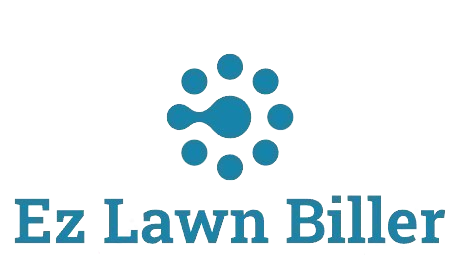Stay Compliant Tips for Lawn Professionals
In the ever-evolving landscape of lawn care, compliance is more than just a buzzword; it’s a necessity. For lawn professionals, understanding the regulations and best practices is crucial to running a successful business. Whether you’re an independent contractor or managing a larger company, staying compliant not only protects your business but also enhances your reputation among clients. This article will delve into essential compliance tips that every lawn professional should know, covering everything from licensing to environmental regulations and operational best practices. Get ready to equip yourself with the knowledge to keep your lawn care business compliant and thriving.
As a lawn care professional, regulatory compliance is paramount for several reasons. First, it minimizes legal risks, which can lead to hefty fines or even business closure. Second, adhering to regulations enhances customer trust, as clients are more likely to choose a service that demonstrates a commitment to professionalism. In this article, we’ll explore critical compliance areas, including licensing, safety protocols, environmental considerations, and financial management tips, to safeguard your business.
Understanding Licensing Requirements
One of the first steps for any lawn care professional is understanding the necessary licensing requirements in your area. Every state has different regulations governing lawn care services, which may include pesticide application licenses, business licenses, and even local ordinances pertaining to noise levels and equipment use.
For example, to apply pesticides or herbicides legally, many states require certification through a state-approved training program. This certification ensures that you understand how to handle chemicals safely and effectively, minimizing risks to both your clients and the environment.
Additionally, local governments may have specific business licensing requirements that must be met before operating. This can include registering your business name, obtaining a tax identification number, and ensuring compliance with zoning laws. Always check with your state and local authorities to ensure you are fully compliant before starting your lawn care operations.
Establishing Safety Protocols
Safety is a crucial aspect of compliance that should not be overlooked. Lawn care involves the use of various tools and chemicals that can pose risks if not handled properly. Therefore, it’s essential to establish comprehensive safety protocols for you and your employees. Start by conducting regular safety training sessions that cover equipment handling, chemical risks, and emergency procedures.
Consider implementing a safety checklist that employees can follow daily. This could include inspecting equipment for wear and tear, ensuring that protective gear is worn at all times, and having first-aid kits readily available. By prioritizing safety, you not only comply with regulations but also create a safer work environment, leading to higher morale and productivity.
Moreover, investing in safety equipment, such as gloves, goggles, and proper footwear, demonstrates your commitment to workplace safety. It can also help reduce the likelihood of accidents, which can have serious financial and legal implications for your business.
Environmental Compliance and Best Practices
As a lawn care professional, you are not only responsible for your business but also for the environment. Many states enforce regulations regarding the use of chemicals that can affect local ecosystems. It is crucial to stay informed about these environmental standards and adopt best practices to minimize your impact.
For instance, consider using organic or environmentally friendly products whenever possible. This not only aligns with regulatory guidelines but also appeals to eco-conscious consumers. Additionally, implementing water conservation techniques, such as using drip irrigation systems, can further help you comply with environmental regulations while promoting sustainability.
Regularly attending workshops and training related to environmentally-friendly practices can enhance your knowledge and help you stay up-to-date with the latest trends and regulations. By demonstrating your commitment to sustainable practices, you can differentiate your business in a competitive market.
Financial Management and Compliance
Effective financial management is vital for compliance, especially concerning tax obligations and employee compensation. Utilizing software solutions, such as [Lawn Biller Software](https://ezlawnbiller.com/), can streamline your billing processes, ensuring that invoices are sent promptly and payments are tracked accurately. This will help you maintain precise records necessary for tax filing and financial audits.
Moreover, all employees must be classified correctly to comply with labor laws. Misclassification can lead to significant penalties. Ensure that you understand the difference between independent contractors and employees, and provide all necessary benefits and compensations accordingly.
Additionally, keeping detailed records of all transactions, services provided, and client interactions is essential. This not only aids in financial forecasting but also provides a safety net should any compliance issues arise.
Leveraging Technology for Compliance
In today’s digital age, technology plays a critical role in helping lawn professionals stay compliant. The right lawn service software can automate many compliance-related tasks, reducing the likelihood of human error. For example, using a lawn service app can streamline scheduling and ensure that employees are properly trained before operating equipment or applying chemicals.
Moreover, software solutions like [Lawn Biller Software](https://ezlawnbiller.com/) provide essential features for tracking service history, managing client details, and generating reports. This data can be invaluable when demonstrating compliance during inspections or audits.
Additionally, cloud-based platforms allow you to store documents securely and access them from anywhere. This can be particularly useful for maintaining records of training sessions, safety protocols, and regulatory compliance documentation.
Staying Informed on Regulatory Changes
Regulations in the lawn care industry can change frequently. To ensure ongoing compliance, it’s vital to stay informed about any updates that may affect your business. Consider subscribing to industry newsletters, joining professional associations, and attending local workshops that focus on regulatory changes.
Networking with other lawn care professionals is another excellent way to gain insights on compliance. They can share their experiences and best practices, providing you with valuable information that can help you stay ahead of the curve.
Furthermore, following relevant governmental agencies on social media or signing up for alerts can keep you updated on changes that might impact your operations. Being proactive about staying informed will help you avoid potential compliance pitfalls and position your business as a leader in the industry.
Best Practices for Customer Communication
Maintaining clear communication with your clients is another essential aspect of compliance. Make sure to inform clients about the services you offer, including any chemicals that will be used and their implications. Transparency fosters trust and can help you avoid disputes.
Additionally, providing clients with written estimates and detailed invoices can clarify the services rendered and associated costs. Utilizing software like [Lawn Biller Software](https://ezlawnbiller.com/) can make this process easier, ensuring that invoices are not only accurate but also professionally presented.
Moreover, establish a feedback loop with your clients. Encourage them to voice any concerns or questions they may have regarding services provided. This not only helps in addressing issues promptly but also demonstrates your commitment to customer satisfaction and compliance.
Conclusion
Staying compliant as a lawn professional involves navigating a complex landscape of regulations and best practices. From understanding licensing requirements to implementing safety protocols and adopting environmental best practices, each area plays a crucial role in your business’s success.
By leveraging technology, such as [Lawn Biller Software](https://ezlawnbiller.com/), and maintaining open communication with clients, you can ensure that your operations remain compliant while also enhancing customer satisfaction.
Remember, compliance is not just about avoiding penalties; it reflects your professionalism and commitment to the lawn care industry. So take proactive steps today to ensure that your business not only complies with regulations but thrives in a competitive marketplace.




